Game of Thrones ended last Sunday. In a shocking twist, the ending let me down, even though I had zero expectations of liking it.
It got me thinking of endings, and how they can so easily disappoint. Universally liked TV endings are a rarity, perhaps because we spend so long with TV characters that it’s hard to say goodbye to them. What do we even expect of a TV ending? Then, expectations are one thing, but what we need to feel satisfied may differ from that.
What Makes An Ending
TV shows are stories that can run for years and years. It presents characters we get to know so well they feel like close friends, like family. Presumably, they feel like this to the writers as well. I can only imagine how daunting the task of writing a finale must be. A finale needs to culminate a character’s story, by resolving the main tension or conflict running through the entirety of it, in some way. For example, when Agents of S.H.I.E.L.D. ends, I expect Daisy to have come to a peace with her found family, and feel at home, completely.
Open threads should be wrapped up, loose ends tied. Things like “Who is A?” or “What was the island all about” and “Who killed _____?”. If stories open these big questions up and then fail to answer them in the end, or give them an answer that feels forced or out of nowhere, the audience will always feel dissatisfied.
Happy endings for the heroes and villains defeated is a very standard desire to have—or the other way around, depending on the kind of show we’re watching.
Ultimately, we want closure. A good ending makes me feel like, though I’d love to see these characters more because I love them, their stories are complete. That there was a point to everything they (and I) went through in this story, and it was all worth it in the end.
It’s Hard to Say Goodbye
In the grand scheme of telling stories, having an idea—even a good idea—is easy. Starting a story is not so much, especially in these times when it would seem people have “seen it all” and thus are not easily impressed. It is said that if you don’t capture an audience’s attention within the first five to ten minutes, you’ve lost most people. Middles are the worst. It is so easy to get lost in a middle, to run around in circles repeating the same beat or lose the point of the story you were trying to tell.
Still, you can get all of the above exactly right, and if you have a bad ending, it’s ruined—your hard work can more or less go in the bin. It’s horrible, and it’s unfair, but an ending can make or break a story, no matter how good it starts out. Quite simply, it is the last thing we remember from a story.
Endings intimidate me to no end, as I’m sure they do plenty of writers out there. I’ve hardly ever done finished stories in my writing life, partly for this reason. This article does not mean to bash on the writers who have written bad endings (I know I have written plenty of). It’s fairly easy to come up with our preferred alternative endings that really would have worked better. In practice, though… When you’re in the thick of the writing process, right smack in the middle of it, you can’t see the whole picture of the finished product as the audience can. Audience expectation can never be fully satisfied either.
This is just a list of the things that make endings disappoint me, or elements that sour good endings for me, accompanied by rants.
Twist Pulled Out the Butt
When there is a final twist or revelation that seems not seeded at all or done for shock value alone. Sloppy twists feel cheap, unearned and almost more than any other reason I give here, can feel like they ruin the entire show.
Gossip Girl
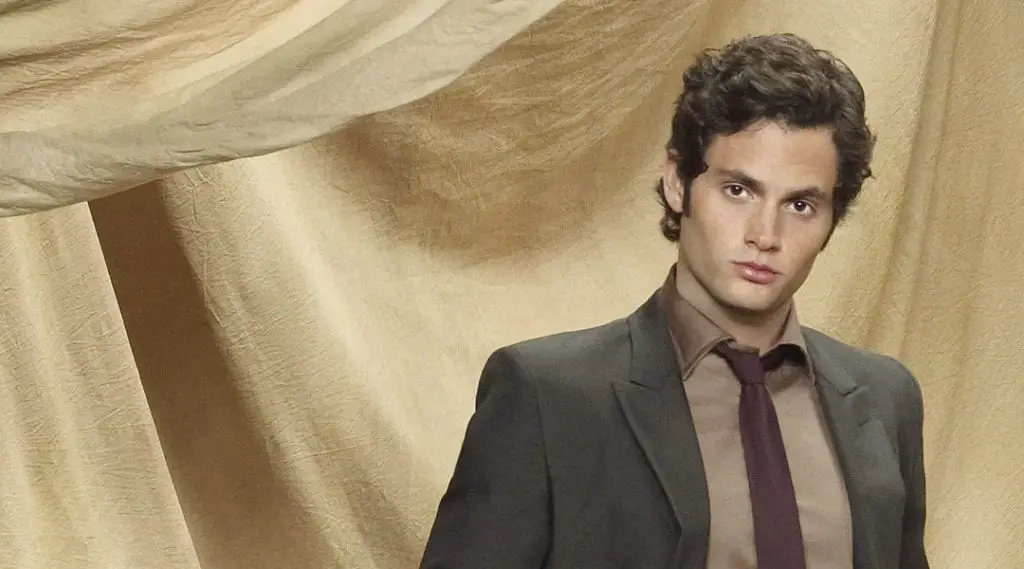
Dan Humphrey was Gossip Girl. Except he wasn’t.
The writers really tried to go for “it was him all along and he was just playing you all”. They even had Serena say that in a way, Dan being Gossip Girl (GG) was a love letter to them all. Um, excuse me? The entire concept of GG was a toxic, horrible mess, and the show seemed to be aware of it in the beginning.
Moreover, Dan being GG “all along” is quite simply not true. He suffered at the hands of Gossip Girl, both in his personal, academic and later professional life. Gossip Girl outed his relationship with a teacher! She brought down his little sister, sabotaged university admission opportunities.
Dan was alone in several scenes of the show while he read a Gossip Girl post and he was shocked! Unless he was also suffering from a serious mental disorder, I’m calling bull. Did we really need to know who GG was anyway?
Pretty Little Liars
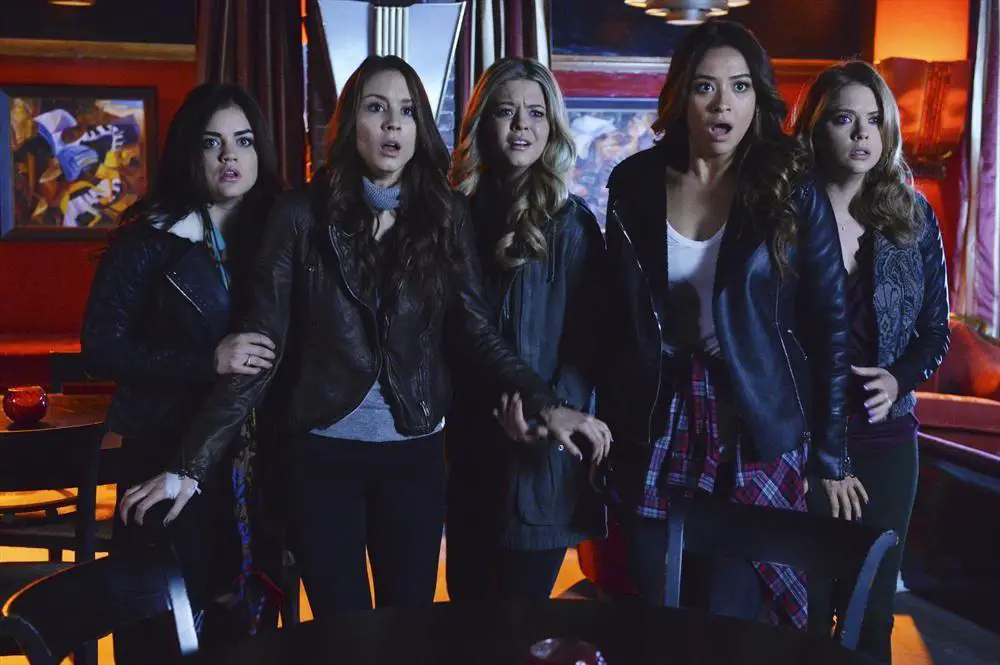
I have to mention Pretty Little Liars (PLL) even though I didn’t even fully watch through to the end, because apart from CeCe being A all along, they also inexplicably went for the incredibly offensive “she’s a trans woman who’s also mentally ill and irreparably evil” scenario. Yikes.
PLL was never a show that made much sense, and it was honestly part of its charm in the beginning, but. YIKES.
Character 180°
A character has been evolving, working towards something, and they nearly get there, or they do… only to turn back at the very last minute and reverse all that work they’d done.
How I Met Your Mother
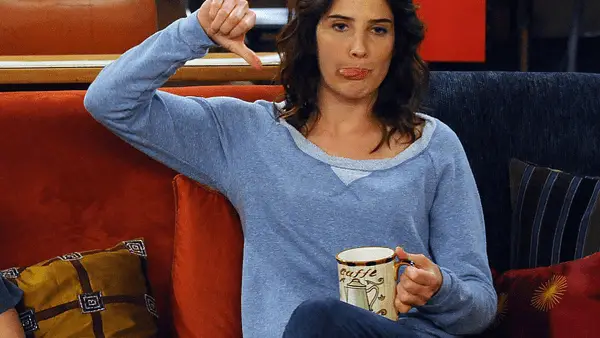
Early on, I knew the mother was already dead in the future. That was not a huge surprise to me, but it was a tragedy that we didn’t get to see her more. For all its flaws, How I Met Your Mother certainly delivered on the mother, Tracy was wonderful!
The problem for me? Robin Scherbatsky.
Robin didn’t want to get married from the start. It was one of the major ongoing features of her character, and the reason she and Ted broke up. They spent a handful of seasons building up her relationship to Barney to get ger to a point where she accepted his proposal.
Fine. Great, even. I’m not opposed to a woman changing her mind. But then, we spend an entire season on her wedding day, only for her marriage to end after a quick montage. She alienates herself from her friends afterwards because…she realized she was in love with Ted all along.
It felt like a disservice to Robin’s character. She and Ted had a wonderful break up, one that was mutual and though heartbreaking, the best for both. Then they built a beautiful friendship post-relationship that seemed healthy more times than not. Robin then came to discover she would get married, but not to Ted. And that was great! That was life! It would have been one thing to have her back out of the wedding last minute, after a season of cold feet, realizing she really doesn’t want to be married. What they did instead was reassert that she had been wrong about not wanting to marry. Specifically, about not wanting to marry Ted.
Back in the day I used to defend the ending. I refused to be let down by a show I had followed for so long and that, in many ways, delivered happy endings to my favorite characters. The more distance I get from it, the more it bothers me.
Endgame Set in Stone
Sometimes when a series is started, its creator or writers have an idea of how they want it to end. No matter how much the characters have changed and evolved, how much the show acquired a life of its own as the show progressed the writers are determined to stick with their original plan.
Gossip Girl
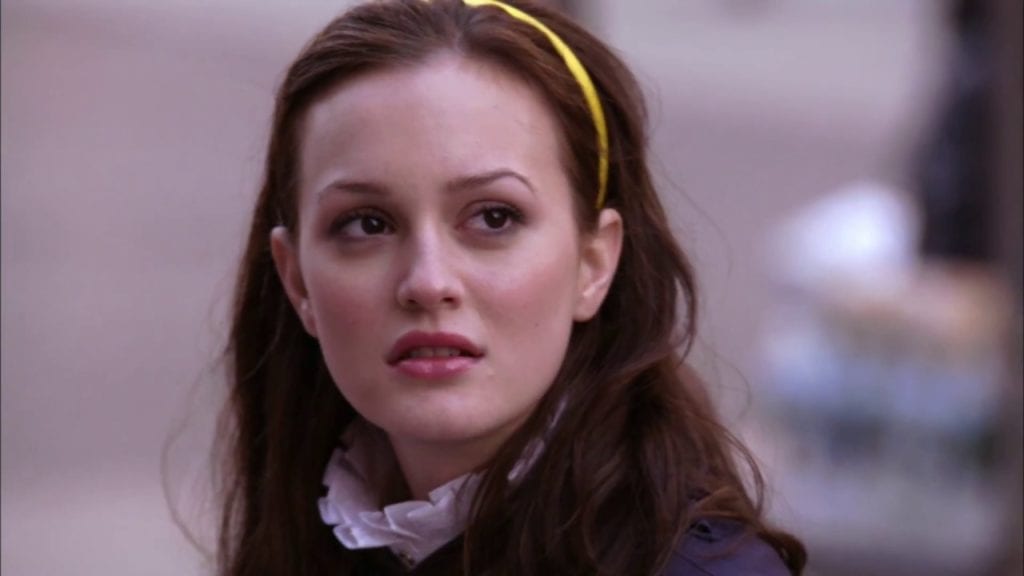
Blair Waldorf spent seasons getting over Chuck Bass. She went through a process of realizing who she became when she was with him, and she decided she didn’t like that person. She went back and forth in a cycle of abuse with him even after that. When she had finally broken free of his hold, out of nowhere, she decides to go back to him at the end. She abandons school, her career and ambitions to be his wife and bear his children—they even threw in a mini Chuck Bass. It was a true Character 180°.
Serena and Dan were mutually terrible for each other. Yet after everything, they ended up getting married in apparent fairytale bliss.
It’s almost like checklist effect on Game of Thrones. These writers had endgame pairings in mind a long time ago, they let their characters wander off on their own and evolve, but then doubled back last minute to force these intended endings.
Last Minute Pointless Deaths
Killing a main character very near the end is not uncommon. Most stories will save final battles until their last episodes, and it is natural that the character’s lives are at stake. Whenever it happens, though, the character ought to be given an appropriate send-off for the audience to feel satisfied. It must feel earned, inevitable, appropriately tragic. If, instead, it’s done for shock, rushed or just to fulfill a requisite, well…
Buffy the Vampire Slayer
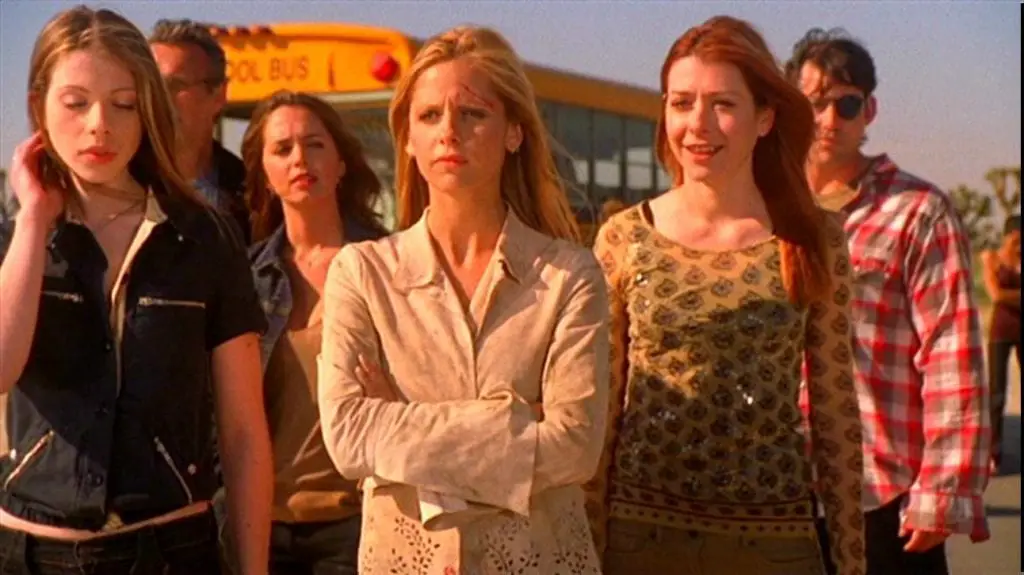
Buffy the Vampire Slayer didn’t have an all-time terrible ending, per se. It was just anticlimactic, following possibly the least-good season of the show. For me though, it was its choice to kill Anya so offhandedly that I’ll never forgive. They dedicated a one second shot to clarify she was dead, and later two sentences to her death.
No one was even that upset about it, not even Xander. And how could they be? The world had almost nearly ended, Sunnydale was destroyed—it was the final episode! They had no time to kill such a major secondary character and give her the time and attention she deserved. Moreover, there was no real reason to off her than trying to give emotional gravitas to a battle episode against a villain best described as “meh, I guess”. Andrew had the biggest reaction to her death. Andrew!
Ugh. Just don’t talk to me, I need a minute.
…
(Actually took a minute after this bit)
Orphan Black
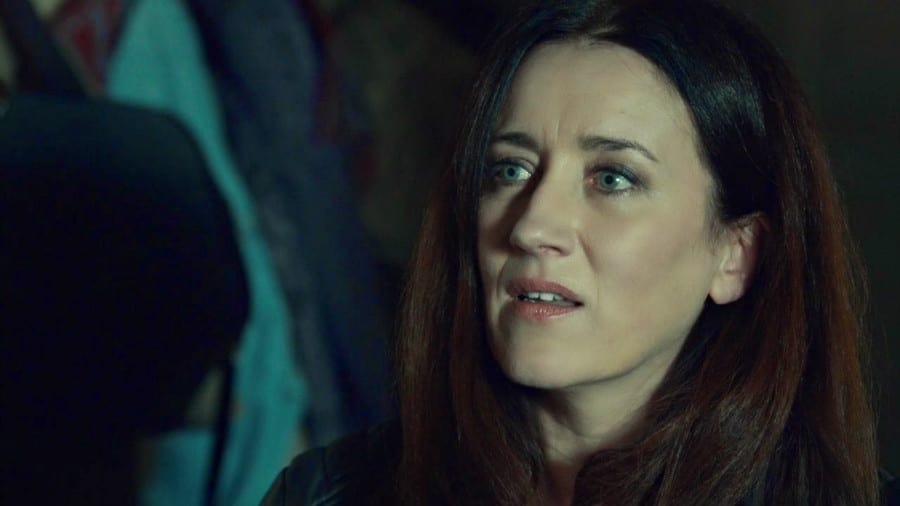
Orphan Black ended with the Leda clones finally retaking their autonomy in a final showdown and then having an unconventional family picnic. It was a happy ending. A well-deserved happy ending.
But as is the trend with stories lately, it’s apparently unthinkable to end with undeterred happiness. Of course, Orphan Black felt like it had to kill someone, and as they couldn’t bring themselves to kill Helena or Cosima (the most obvious choices) and Sarah was never going to die, they settled on Sarah’s mother, Siobhan.
Siobhan’s death felt to me like a requisite. The circumstances in which she died were entirely too avoidable for it to feel warranted. They wanted to kill her, so they made her go face a killer alone, while she could have alerted any number of people what was happening. It was done because they felt it had to be done, for the ending to be appropriately bittersweet. I refuse to believe it had to happen, and it soured an otherwise great ending for me. When is this trend of “no happy endings allowed” going to end?
Flaking Out
Angling towards something and then not doing it. Promising a smashing ending, a death or confrontation and not coming through, in a way that doesn’t seem character driven or trope breaking.
A famous flake out is the end of The Sopranos, a show I have never actually watched but know mostly because of its famous ending. There are two things I know: a) it was great, and b) it cut out of a scene in the end.
I’ll just come out and say why I made this category, though:
Faking It
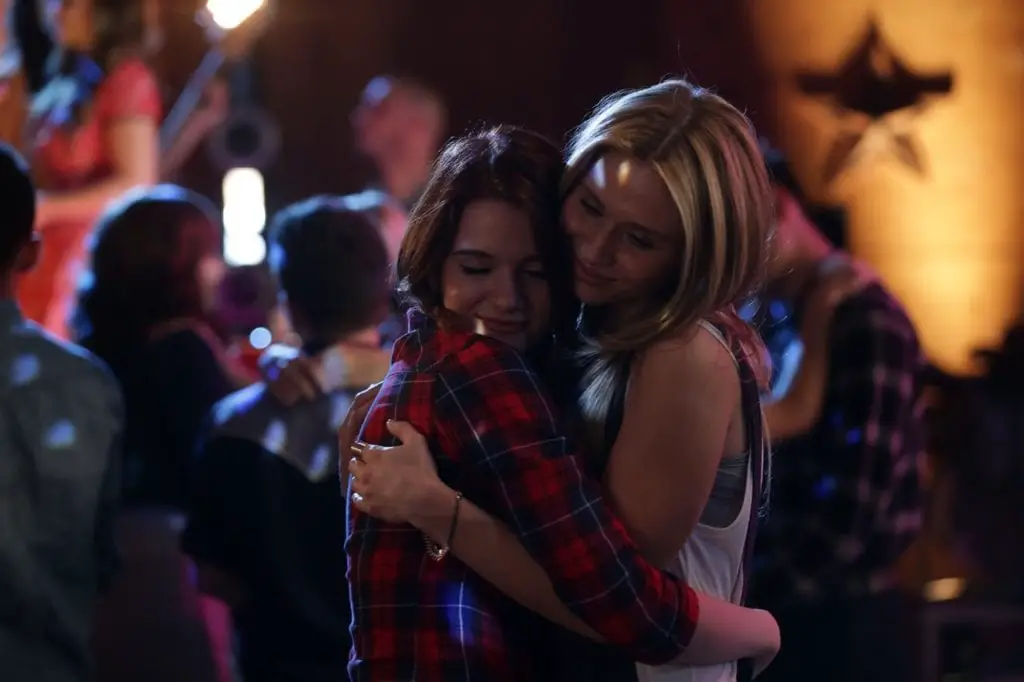
It’s true that Faking It got cancelled and they had to scramble to wrap it up way ahead of time. That alone puts a pin on this. However, the show failed to deliver what it had been teasing fans about for the entire show, and especially the last season: Karma’s feelings for Amy.
Much of the show seemed to be angling towards Karma realizing she might have deeper feelings for Amy than she let herself believe. In the finale, Amy is still brokenhearted about recent ex Sabrina. Karma realizes this and helps them reconcile. Then she goes outside and…kisses Felix, a guy who had been hung up over Amy for a while. Okay?
Even if the show didn’t go there with Karma, her kissing Felix outside felt unearned. Perhaps if they had another season to deal with that kiss or what it might have meant for Karma and Felix, but no. That’s how the show ends. For all intents and purposes, Karma “ends up” with Felix. Don’t misunderstand me, I do not think Karma should have “ended up” with Amy—there was still much exploring and evolving she had to do on her own. What happened to Karma feels like a flake out, and Karma and Felix felt like a Twist Pulled Out the Butt. Again, the show got cancelled, so who knows what would have come of it.
Bad Last Season(s)
There are many reasons why entire seasons of a show feel lacking. Sometimes shows get cancelled, and the writers are forced to close up shop before anyone’s ready, like Faking It. It could be because the writers or showrunners get changed, as was the case with the middle seasons of Community.
I would say most of the time it’s because writing is hard and maintaining the quality of a show for years is a gargantuan challenge. Meanwhile, maintaining the novelty that makes a show feel shiny and new is impossible. Sometimes, that season that was bad is the very last season. (Imagine if Orphan Black had ended after season 3). Sadly, that last season is the thing people will remember. Some writers make creative choices with good intent that hurt the show. Other times, writers seemingly stop caring, bored with the show and the characters—ahem, Game of Thrones seasons 5-8, anyone?
Xena: Warrior Princess
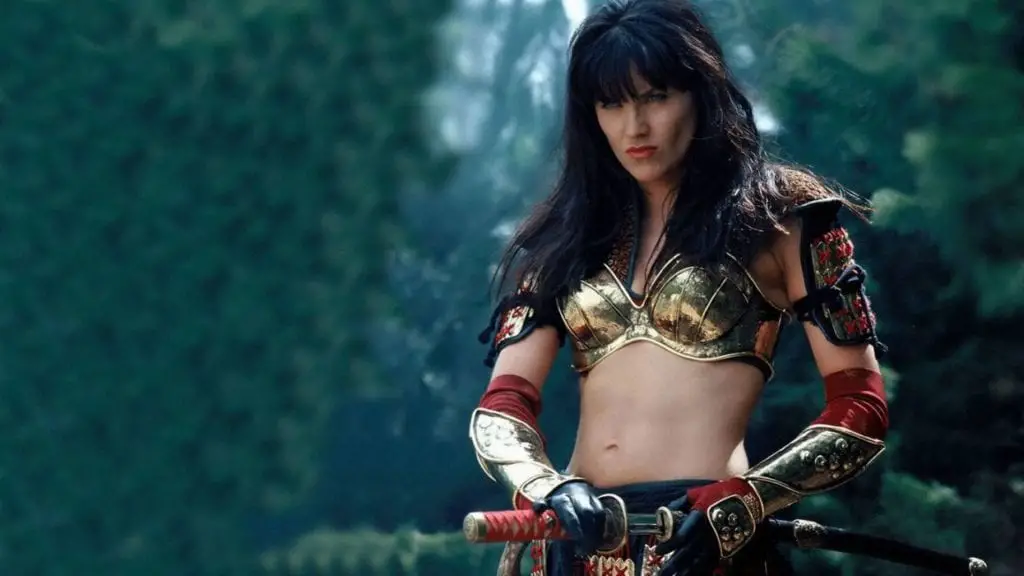
I believe Xena falls into the category of creative choices made with good intent. You see, Lucy Lawless had been pregnant, and her pregnancy written into season 5. Later, it felt like the writers wanted to rectify that and proceeded to have Xena and Gabrielle frozen on ice for twenty years. That was the decision that changed the show in a way that was irreversible, and hurt it beyond repair, for me.
Xena pregnant and its justification was bizarre, yes, but it wasn’t the craziest thing that had happened on the show. If they wanted to get rid of the baby plot (which undoubtedly made the show drag a bit) there were ways to go about it that didn’t include changing the entire world of the show, and its cast of characters. Giving her up for adoption, leaving her with relatives, or the Amazons, for her own protection spring to mind. The later seasons of Xena were also a bit too heavy with the retconning. I must confess I have never watched the final two episodes. I know what happens, and I’ve never wanted to see it for myself. My time has come, it seems, as I am slowly making my way through a re watch and I am dreading it.
The Journey, Not the Destination
There you have it, some of the most disappointing endings—or aspects of them—for me, personally. I failed to mention some examples on this list, like The Vampire Diaries, Heroes and the infamous Lost, but this was getting too long already.
Ultimately, I am not one to disqualify a show for its ending. Some of these are my favorite shows ever. I still think that the first season of Heroes, for example, is worth watching despite it going downhill. Orphan Black is among my top 3 favorite shows of all time and Buffy is my all-time favorite. It never hurts to analyze why something feels wrong. Perhaps some of the reasons I’ve given here feel a bit like rationalizing to you, and I would never presume to write better than any of the people involved in the shows. In the end, we all want different things out of endings: closure, answers, pairings, catharsis. In the end, no show can deliver what everyone wants.
Images courtesy of The CW, ABC Family/Freeform, CBS, The WB/UPN, BBC America, MTV, NBC Universal.

